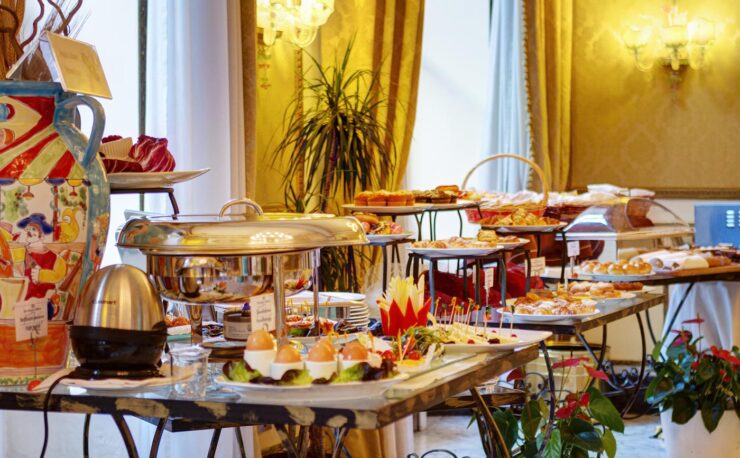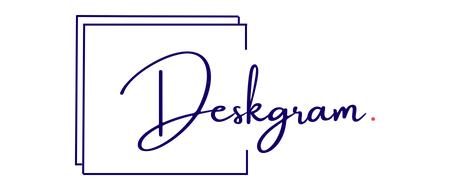In the dynamic landscape of the hospitality industry, achieving peak operational efficiency is a task of immense significance. Equally vital is maintaining this efficiency to stand apart in a fiercely competitive market. This article explores eight proven strategies that can amplify the operational efficiency of your hotel, guaranteeing greater customer satisfaction and superior revenue generation.
Streamlining Front Desk Operations

Central to any hotel’s operations is the front desk – the initial point of contact for guests, and consequently, the first opportunity to make an impression. An effective way to streamline these operations is by simplifying check-in and check-out procedures. The use of pre-registration facilities and express check-out options can significantly reduce guest waiting times and enhance their overall experience.
The process of simplification does not end with minimizing guest wait times. Attention must also be given to how staff manage guest data. Employing Customer Relationship Management (CRM) systems can substantially aid in managing and analyzing guest data effectively, providing crucial insights into guest preferences and behaviors, hence helping to deliver personalized service. For more crucial tips on hotel management services, visit this site.
Enhancing Housekeeping Efficiency

The secret to superior housekeeping efficiency lies in the art of scheduling. A judicious mix of flexible and fixed schedules allows for a balance between predictability and adaptability in the face of unforeseen circumstances. In essence, this strategy ensures the availability of housekeeping staff when demand is highest, and enables flexibility in response to last-minute room bookings or extended stays.
Housekeeping efficiency is also a matter of skill. Staff must be thoroughly trained to work swiftly without compromising on cleanliness and aesthetic standards. Regular performance evaluations can help identify areas for improvement and ensure a consistently high standard of cleanliness. It’s not just about fastidious cleaning but about accomplishing the job with precision and speed.
Optimizing Food and Beverage Operations

Food and beverage operations form a significant part of a hotel’s offering. Maintaining a high level of efficiency in these operations demands careful menu planning, factoring in guest preferences, cost, seasonality, and availability of ingredients. An optimized menu reduces wastage, ensures the fresh delivery of food, and enhances the guest’s dining experience.
Taking a step further, operational efficiency extends beyond the kitchen and into the dining area. Efficient table management, such as strategic table assignment and turnover, can reduce guest wait times and increase seating capacity. The application of such methodologies ensures an enjoyable and seamless dining experience for all guests, promoting repeat business.
Implementing Effective Revenue Management Techniques
Effective revenue management in a hotel environment requires a sound understanding of demand patterns. By analyzing data such as occupancy rates and booking lead times, hotels can adjust room rates dynamically to optimize revenue. Additionally, selling ancillary services, like spa treatments or dining packages, can also boost overall earnings.
Understanding market competition is just as crucial for revenue management. By monitoring competitors’ rates and offerings, hotels can adapt their pricing strategies to remain attractive. Simultaneously, they can identify unique selling points that allow them to differentiate themselves from the competition.
Utilizing Technology for Operational Efficiency
Embracing modern technology can profoundly transform operational efficiency. One avenue is through the implementation of a robust Property Management System (PMS), which enables streamlined management of reservations, billing, and room status updates. Not only does this alleviate manual workloads, but it also enhances accuracy and efficiency.
The role of technology extends to guest interactions as well. From mobile check-ins to AI-powered concierge services, innovative technologies can significantly enhance guest experiences. By leveraging these digital tools, hotels can differentiate themselves in a crowded market and bolster operational efficiency.
Enhancing Staff Training and Development

An efficient hotel operation heavily depends on the caliber of its staff. Implementing a rigorous training program is vital to equip staff with the necessary skills and knowledge to perform their tasks effectively. Comprehensive training also familiarizes them with hotel standards and expectations, fostering a sense of unity and professionalism.
Staff development, though, doesn’t stop at initial training. Continuous learning and development programs offer opportunities for staff to enhance their skills and grow within their roles. This not only increases staff motivation and retention but also ensures that your team stays at the cutting edge of industry trends and standards.
Improving Guest Communication and Satisfaction
Guest communication is paramount to the success of any hotel. Proactively seeking feedback from guests and addressing their concerns promptly can significantly improve guest satisfaction. This could be done through post-stay surveys or even a quick chat during their stay, making guests feel heard and valued.
The essence of guest satisfaction, however, extends beyond mere communication. It’s about creating memorable experiences that guests would want to relive. Personalizing their stay – be it through tailored recommendations or recognizing special occasions – goes a long way in fostering loyalty. Remember, a satisfied guest not only returns but also becomes a powerful advocate for your hotel.
Efficient Inventory Management

The optimization of inventory management is a subtle, yet potent way to improve operational efficiency. An effective strategy is to implement a Just-In-Time (JIT) inventory system, which minimizes stock levels by ordering goods as they are needed. This reduces storage costs and wastage, positively impacting your bottom line.
Yet, the effective management of inventory goes beyond just cost savings. It is about ensuring the availability of necessary items when they are needed. Real-time inventory tracking can ensure that supplies never run out, enabling the hotel to cater to guest needs promptly and efficiently, thereby enhancing guest satisfaction.
Final Thoughts
Attaining success in hotel management is a continual journey, one that requires constant innovation and adaptation. By streamlining front desk operations, enhancing housekeeping efficiency, optimizing food and beverage operations, implementing effective revenue management techniques, utilizing technology, enhancing staff training and development, improving guest communication and satisfaction, and managing inventory efficiently, hotels can significantly improve their operational efficiency.
Although these strategies demand meticulous planning and execution, they promise immense returns in the form of enhanced guest experiences, stronger staff performance, and ultimately, greater revenue. Remember, the path to success is paved with efficiency and guest satisfaction at its heart. With these strategies at your disposal, you are well-equipped to navigate the dynamic landscape of hotel management and emerge victorious.

